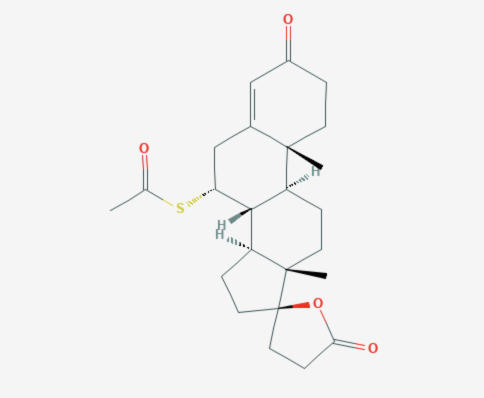Spironolactone for adult acne – read this first!

Fifty million Americans struggle with acne, and the American Academy of Dermatology recommends starting treatment by assessing acne severity and skin type. For most, a combination of topical medications like benzoyl peroxide, along with the right cleanser and moisturizer, is usually effective in controlling acne. However, about 15-20% of people may require oral medications. The most effective option is Accutane (isotretinoin), though it’s not suitable for everyone. Accutane is contraindicated during pregnancy and requires close monitoring by a dermatologist. Women with hormonal acne may also benefit from adding birth control pills or Spironolactone to their treatment plan.
Is Spironolactone a hormone?
Spironolactone is not a hormone; it's a diuretic that also functions as an androgen blocker. By inhibiting the effects of male hormones, such as testosterone, it helps reduce oil production, which can lead to a decrease in acne.

The chemical formula of Spironolactone
Who Should Consider Spironolactone?
Spironolactone should always be used alongside a proper topical skincare routine and is typically considered after six months of ineffective topical treatments. It’s suitable for healthy adult women with moderate to severe hormonal acne that hasn't responded to topical treatments, especially for those with Polycystic Ovary Syndrome (PCOS).
Does Spironolactone Work on Body Acne?
In one study, women taking 75-150mg of Spironolactone daily saw a 50% improvement in facial acne and a 37.5% improvement in body acne.
Duration of Spironolactone Treatment for Acne
While Spironolactone doesn't cure acne like oral antibiotics or birth control pills, it helps reduce breakouts to a manageable level. Dermatologists typically prescribe it for 6-12 months to maintain long-term results.
When Can You Expect Improvement?
Acne improvement with Spironolactone is typically seen within 6-8 weeks, with studies showing a significant reduction in lesion count after three months. Dosages as low as 50mg per day have been effective for some patients, though results vary.
Adverse Effects of Spironolactone
Common side effects include breakthrough bleeding, amenorrhea, and lightheadedness. Less common side effects may include changes in menstruation, frequent urination, dizziness, headaches, nausea, vomiting, breast tenderness, and enlargement. However, no evidence currently supports an increased risk of estrogen-sensitive cancers in Spironolactone users.
Effect of Spironolactone on Hair
Spironolactone also helps counter the effects of androgens, promoting thicker, fuller hair growth in women with female pattern hair loss.
Foods to Avoid When Taking Spironolactone
It's important to avoid potassium-enhanced salt and supplements while taking Spironolactone, as well as reducing potassium-rich foods like avocados, bananas, coconut water, spinach, and sweet potatoes.
Doses of Spironolactone
The typical dosage ranges from 100-200mg per day.
Combination of Spironolactone with Other Medications
Spironolactone should not be combined with other diuretics or potassium supplements, and regular blood tests every 3-6 months are advised to monitor potassium levels.
Shop:
DIM - Best natural supplements to balance your hormones and help with adult acne
Best Customised hair loss treatment kit for women with female pattern hair loss and PCOS
References:
Spironolactone for the treatment of acne in women, a retrospective study of 110 patients
Effective anti-acne treatment to treat before Spironolactone
Oral Spironolactone in Post-teenaSpironolactoneents with Acne Vulgaris
To find the right acne treatments for your unique skin, take the free skin assessment by clicking here.



